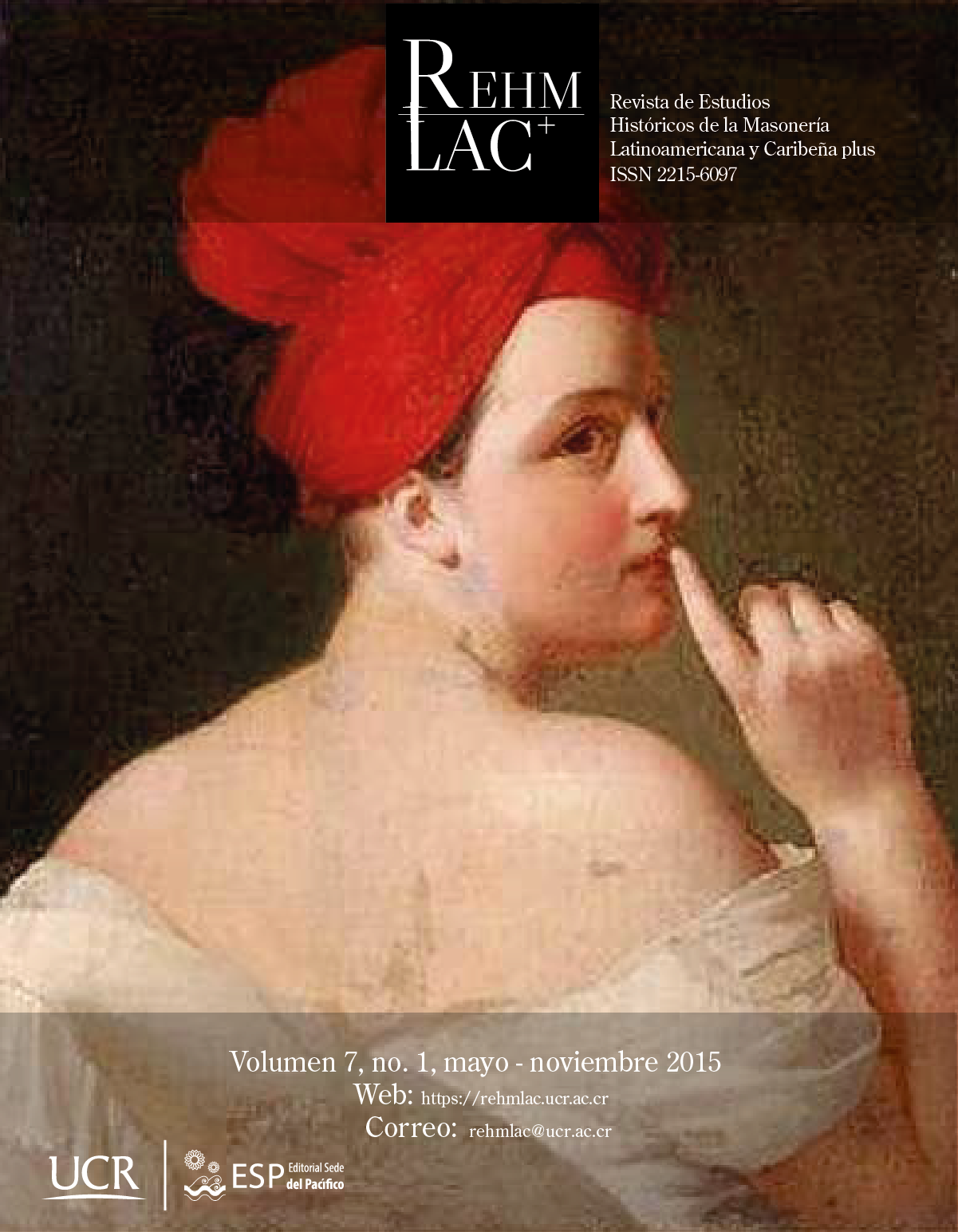Abstract
Brazilian Freemasonry was understood as not possessing the anti-clerical disposition that marked part of its European trajectory. In imperial Brazil it was a source of political articulation present in high places of power. This fact made the Catholic Church -the official religion- oppose Freemasonry in what became known as the Religious Question (1872-1875), in order to inhibit government initiatives contrary to ecclesiastical interests. Weakened internally, the church utilized its anti-Masonic strategy in the diplomatic sphere between the Vatican State and the Brazilian State, which is found in the document studied here: Instructions to Ordinaries revmº of Brazil, on how they should proceed with affiliates to Freemasonry, 1878.
##plugins.facebook.comentarios##

This work is licensed under a Creative Commons Attribution-NonCommercial-ShareAlike 4.0 International License.
Copyright (c) 2009 Revista de Estudios Históricos de la Masonería Latinoamericana y Caribeña

